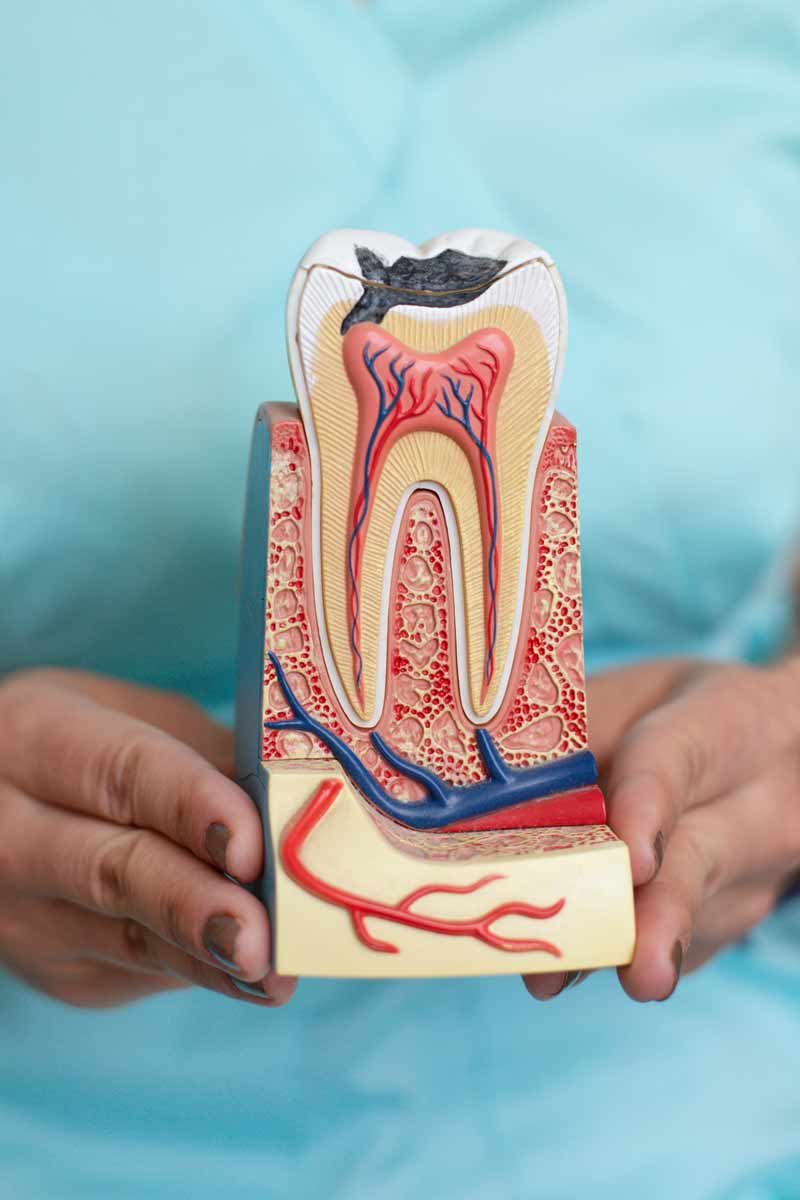One of the most common dental problems is cavity. At present, they have been an important topic of discussion in detailed dentistry. Dental caries affects people of all ages, from adults to children. Dentists usually discover cavities when the patient has already suffered a great deal. Cavities are generally an asymptomatic disease. Keeping oral health safe and sound requires awareness of cavities and their causes, symptoms, and treatments.
Cavities (dental caries or tooth decay) are holes inside the teeth. The reason is bacterial infection. In most cases, it begins with normal tooth decay that results in severe pain, inflammation, or even tooth extraction. Sugars absorbed through sweetened beverages and drinks accelerate decay. Your mouth’s bacteria turn sugar into acid, which forms plaque and erodes tooth enamel. Cavities and tooth decay begin with the loss of enamel lair.
Cavity Signs & Symptoms
Cavities usually don’t present symptoms initially because we ignore our normal tooth pain and irritation. However, if you know the subtle signs you are experiencing concerning cavities, you can avoid serious consequences. The following symptoms characterize cavities:
- Having a bad breath
- Bad taste in the mouth
- Bleeding gums
- Pain in the mouth or tooth
- Stains on teeth that are white or black
- Facial lump or swelling
- Cold or hot foods cause tooth sensitivity
- The area around the mouth is red or has inflammation
Teeth with visible holes
Cavity Types
Cavities come in different types:
- Dental caries in the crown
- Fissure caries
- Caries of the roots
- Caries in the interdental space
In teeth, crown carriers appear above the gum line. In the beginning, the enamel layer decays, and the tooth becomes discoloured. When the tooth is initially yellow, it gradually becomes darkened by caries. Small fissures present in your teeth allow fissure caries to grow. If your teeth already have cracks or fissures in the anatomical structure of the teeth, the bacteria will work hard to expand the crack and erode your enamel. They effect is most commonly on back teeth and molars.
Cavities that affect teeth’s roots are root caries. Generally, this portion of teeth lacks enamel, and your gums serve as a shield. The root area becomes exposed without gum, allowing bacteria to attack and decay the tooth. In terms of the risk of tooth extraction, interdental caries is the most severe form of the cavity. It occurs when bacteria attack the spaces between the teeth. Bacteria love this place because we usually leave our food there after eating, which causes it to grow.

Treatments for Cavity
Cavities are treated differently depending on their severity and if you have other health issues. Proper treatment for your cavity is best achieved through consultation with a dentist with extensive dental knowledge about various methods to treat cavities effectively. Different treatments include Fluoride treatment, fillings, root canals and tooth extraction.
If your cavity is diagnosed early, a fluoride treatment may be your best option. You can prevent decay by using medicated toothpaste and mouthwash. When your teeth have visible holes, filling them is very beneficial. After removing decayed material, the dentist fills the gap with silver amalgam, composite resin, or gold. Root canals are comparatively complex and painful procedures. Dentists generally recommend a root canal if you suffer from root decay so that the pulp can be removed and the tooth can be set. Eventually, tooth extraction is necessary if the above methods fail. In this case, the dentists pull the problematic tooth and implant an artificial tooth if required.
Cavities Can Be Prevented by Daily Dental Care
Prevention is better than cure. It would help if you built a healthy habit of thorough dental care since cavities can harm your oral health and daily life. To keep your teeth healthy, follow these daily habits:
- Use fluoride toothpaste and a comfortable toothbrush to brush your teeth every day
- Drinks and beverages that contain sugar and starch should be avoided.
- Get your teeth healthy by eating healthy fruits and vegetables.
- Visit your dentist regularly for a dental check-up.
- Don’t ignore any tooth pain or irritation.
Following basic oral hygiene and eating a healthy diet can prevent cavities or tooth decay.
Contact SkyRise Dental if you want to get a cavity treatment in Richmond Hill.



